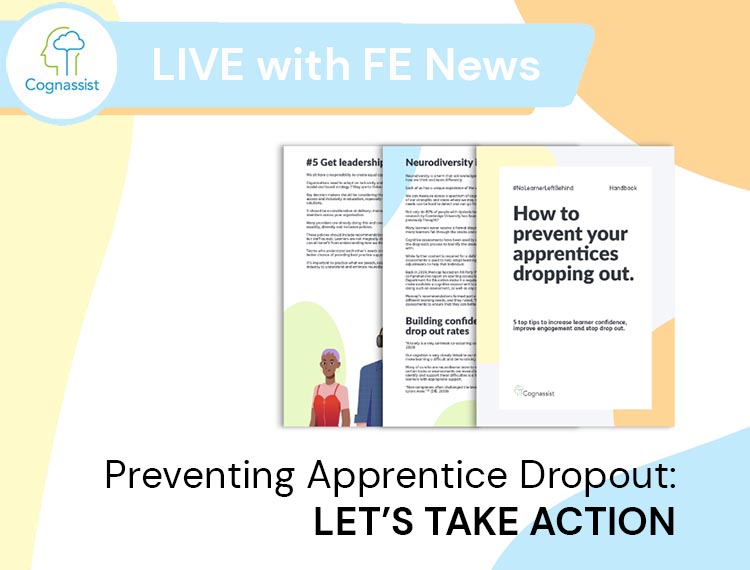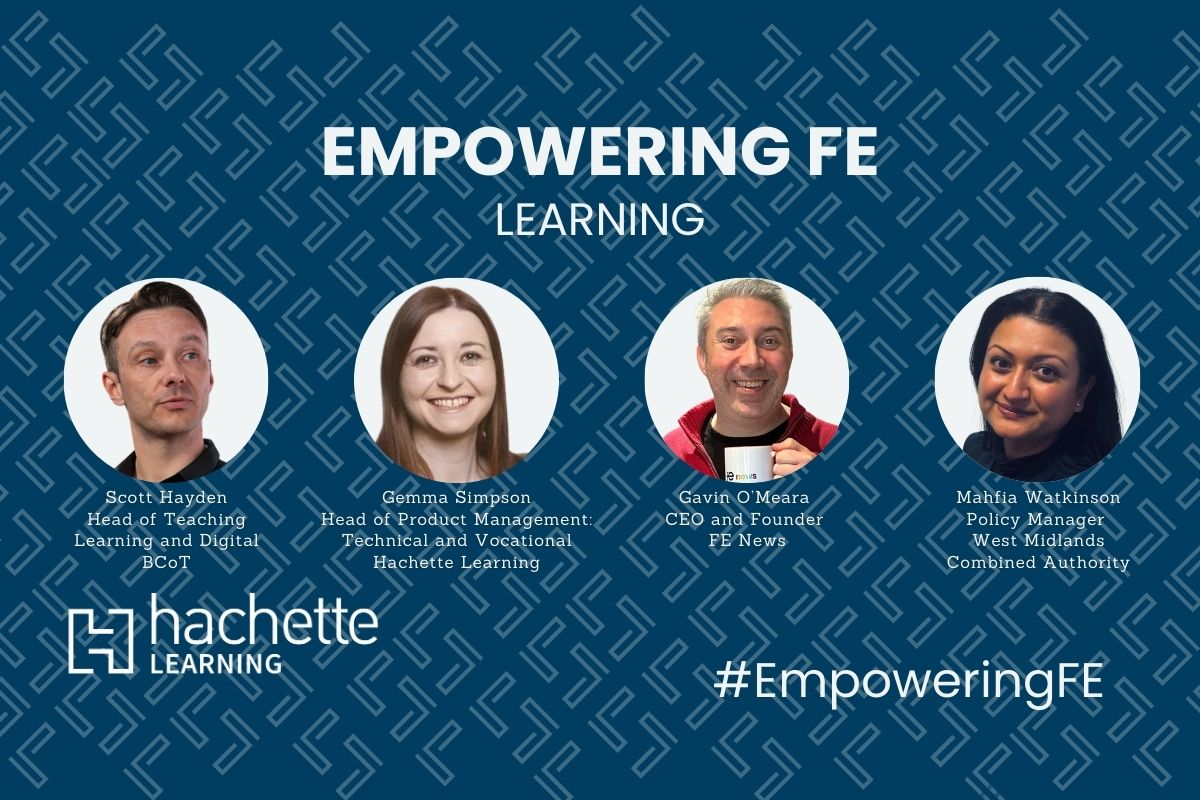How can we prevent apprentices dropping out and improve outcomes?

Consistently high dropout rates for UK apprenticeships cast a disappointing shadow on our desire to improve positive outcomes in the sector. And now is the time to ask ourselves if apprentices are really getting enough support on programme.
The drive towards increasing apprenticeship starts, led by the Government’s lifetime skills guarantee, will all fall apart if we don’t focus on keeping those apprentices on programme and identify and support learners at greater risk of dropping out.
“Whilst non-completers left for a variety of reasons, it is important to acknowledge that a significant number were driven to drop out by poor quality provision.” (Department for Education, 2019)
We all care about both quality and equality in the sector, and it’s becoming clear to many of us that these ideas are inseparable from each other.
No organisation can claim they are providing quality apprenticeships if they are not providing this quality for all apprentices.
In the wake of the pandemic, there is a heightened awareness that we need to take a more tailored and flexible approach to supporting learners’ needs and also acknowledge that staff will need support themselves to do this.
So how can we improve learner’s overall experience of their programme and make sure that inclusivity is a priority?
Let’s talk about outcomes
Currently, 35% of all apprentices drop out, and of the apprentices who are retained, only 65% go on to achieve their qualification. (National Achievement Rates Tables, 2019)
We need to put the spotlight on outcomes in the sector and use an evidence-based approach to increasing retention, achievement and progression.
“Non-completers often challenged the level of support they received and how responsive tutors were.” (Department for Education, 2019)
Tutors always want to do the right thing for learners, but their ability to respond to learners’ needs requires impactful initiatives that prioritise inclusion and improve learner’s confidence in their ability to learn. Giving tutors the tools to respond to learners quickly and appropriately will go a long way towards retention, without creating further pressure on workload.
Support at end-point assessment is equally important, and the inconsistent application or lack of reasonable adjustments create significant barriers to achievement for many learners. Even though it is a legal requirement, it’s clear that they are still not being implemented effectively or consistently across the sector. This is not always the fault of providers, as end-point assessment organisations often have inconsistent processes, with some having no process at all for implementing reasonable adjustments.
Finally, progression through learning and work is not just about attaining qualifications. It’s about understanding and having confidence in our own abilities, even when we may find some tasks more challenging. Unidentified needs or previous negative experiences in education can dramatically impact confidence, and a learner who lacks confidence is more likely to disengage from their programme. Everyone can learn, however, and by giving every learner the opportunity to reach their full potential, we can help to build a love of learning and create new pathways to progression.
Steps to improving outcomes for apprentices
Equality, diversity and inclusion have always been part of the conversation around improving outcomes, but now we need to get serious and make changes that drive these policies into practice. Meaning that organisations can provide insight and evidence into how they are living up to their EDI commitments and improving their learning journey.
Identifying learners who are likely to struggle in a learning and work environment is essential, and understanding what effective steps organisations can take to support learners is going to make all the difference.
With recent research and data, Cognassist has released a new handbook containing 5 top tips to increase learner confidence, improve engagement and prevent your apprentices from dropping out.
Taking us all a step closer to making sure no learner is left behind.
Want to continue the conversation?
FE News are hosting a livestream all about taking action and preventing dropout at 10:00am on the 7th July.
You can join:
- Gavin O’Meara, CEO and Head of digital, FE News
- Louise Karwowski, Director of Education, Cognassist
- Sally Dicketts, AoC President, CEO Activate Learning
- Helen Wilson, Science Communication Manager, Cognassist (handbook author)
![]() Gavin O’Meara, CEO and Head of digital, FE News, said:
Gavin O’Meara, CEO and Head of digital, FE News, said:
“We all know dropout is a serious problem for the FE Sector and this handbook provides some proactive steps we can all take to help prevent apprentices from leaving programmes.
“I’m really excited to continue this conversation with Cognassist and AoC’s Sally Dicketts on the 7th July.
“It’s time we get active in the fight against dropout.”










Responses